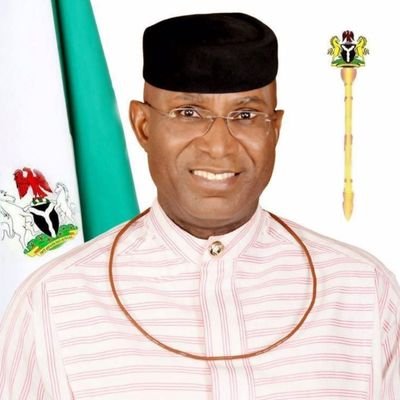
As part of measures to further enhance the integrity of the electoral process in Nigeria, the National Assembly would ensure that card reader is given legal backing in the new Electoral Act.
The Deputy President of the Senate, Senator Ovie Omo-Agege disclosed this when he received the Nigerian Representatives of the African Union Economic, Social and Cultural Council, (AU-ECOSOCC).
The council was led by Dr. Tunji Ashaolu in Abuja, Omo-Agege said it was important that the card reader be made part of the legal regime for elections.
In a statement issued by Yomi Odunuga, Special Adviser, Media and Publicity, to the Deputy President of the Senate. Omo-Agege maintained that card reader will ensure credible polls, even as he assured that the mistakes of the Eighth National Assembly where the amendment of the Electoral Act breached ECOWAS Protocol would not be repeated by the current leadership.
“I am sure any minute from now, we are going to be coming up with a revised Electoral Reform Amendment Bill that will address issues that are very dear to us and issues that came to the fore in the 2019 elections, most especially revolving round the legality of the card reader.
“We know that there is no way you can have genuine, credible, free and fair elections in this country without addressing the issue of the card reader. Most of the litigation that arise from the 2015 and 2019 elections have always centred around the legality or otherwise of the card reader. The courts have made it very clear that as far as they are concerned, Section 49 of the Electoral Act is very clear that the only document recognised by law for purpose of accreditation is the voters register.
“To the extent that we believe that we want to introduce any innovation including but not limited to the card reader, we have to do the right thing. The right thing as far as we are concerned is for us to pass the law to make the card reader part of the legal regime.
“We are hellbent on doing that. And we actually tried in the committee that I served on in the Eighth Senate but the leadership of the Eighth Senate delayed it and by the time it passed, it had ran into challenges with the ECOWAS Protocol, dealing with the timing of vital, legal regime that would govern elections, which must be done six months before the exercise”, he stated.

He, however, explained that contentious areas in the amendments made by the Eighth National Assembly would be removed before the bill will be passed and sent to the President for assent.
“There were also provisions that we pushed at that time which with knowledge of what has transpired on the 2019 elections, we are not going to be insisting on.
So, we need to make some adjustments, remove all those contentious areas and at least agree on the one area that every Nigerian has come to accept: that it is very important that the card reader be made part of the legal regime for elections”, he added.
Omo-Agege who represents Delta Central Senatorial District, also expressed the desire of the Ninth Senate to ensure that the Petroleum Industry Governance Bill (PIGB) is given accelerated approval.
He assured that the bill will have the buy-in of the executive arm of government to avoid the mistakes of the past.
He said: “This time around, it is the determination of the Ninth Senate that we are going to have this (PIGB) passed. And we have also come to the conclusion for us to be able to achieve this, we are going to be working in synergy with the executive arm to have this passed”.
Earlier, leader of the delegation, Dr. Tunji John Ashaolu, emphasized the need for Nigeria to take its rightful place in the African Union (AU).
He also called on the National Assembly to immediately revisit the Electoral Act Amendment Bill as well as the Petroleum Industry Governance Bill.
